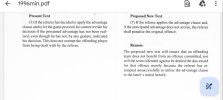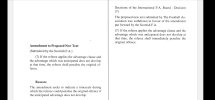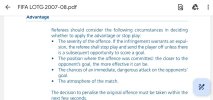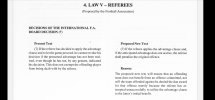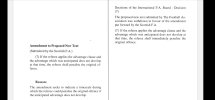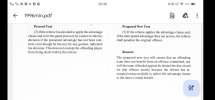It does not say this anywhere in the LotG. It says the referee 'allows play to continue when an offence occurs and the non-offending teamJust because this is how they do it on the telly, doesn't mean we should be advising refs to do it at lower levels. Correct way as per the LotG is to signal advantage, and then blow for the offence if the advantage doesn't materialise within a few seconds.
will benefit from the advantage, and penalises the offence if the anticipated advantage does not ensue at that time or within a few seconds.'
It is talking about letting play continue to see if an advantage will ensue immediately or within a few seconds. It should only be signalled when it actually does. Otherwise we would be signalling advantage more or less whenever a team retains possession following a foul, which would be daft.
Last edited:



